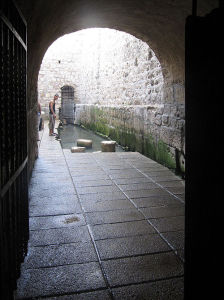My Father Under The Oxygen Mask Took Hold
Barbara D. Holender
On the Yahrzeit of my father
The taxi arrived for me
at the same moment the paramedics arrived
for him. I want you to leave, he gasped.
Sure, I said, right now I’m leaving the country.
At eight we called the family. At ten,
the doctor asked if we wanted heroic measures.
At two, he struggled to tell me something.
Don’t, I thought, Don’t say goodbye.
I leaned closer. Pay the rent, he wheezed,
Tell Mom it’s the first of the month.
At three the doctor gave him, maybe, six months.
At four my uncle choked back tears.
Hey, you owe me two cents.
I’m broke, said my father,
Loan me two cents so I can pay you. read more

